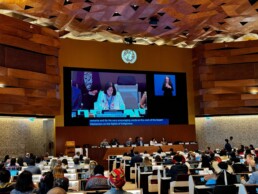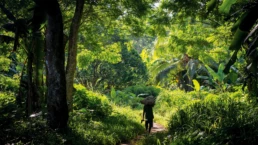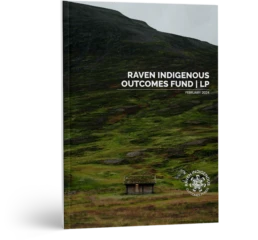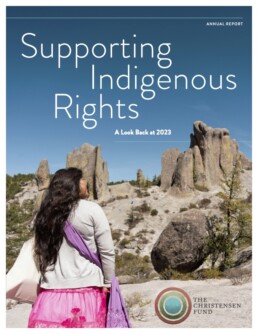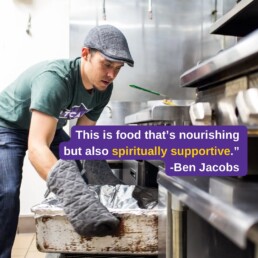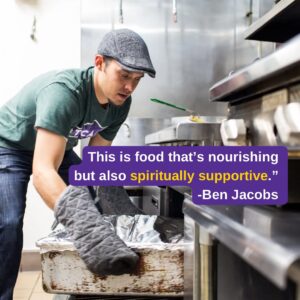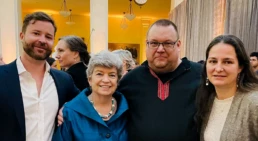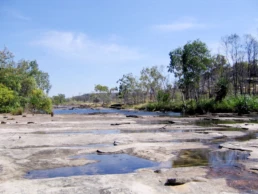The 17th Session of the Expert Mechanism on the Rights of Indigenous Peoples
The Expert Mechanism on the Rights of Indigenous Peoples (EMRIP) provides expert advice and studies to the United Nations Human Rights Council to ensure the rights of Indigenous Peoples are respected on a global scale. EMRIP was established by the Human Rights Council in 2007. EMRIP meets annually in furtherance of its role to conduct studies to advance the promotion and protection of Indigenous Peoples’ rights by clarifying the implications of key principles, such as self-determination and free, prior and informed consent; examine good practices and challenges in a broad array of areas pertaining to Indigenous Peoples’ rights; and suggest measures that States and others can adopt at the level of laws, policies and programmes.
Our Partners at EMRIP
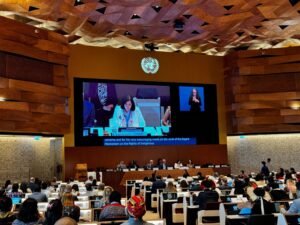
At this year's session, the Asia Indigenous Peoples Pact (AIPP) and the International Work Group for Indigenous Affairs (IWGIA) organized a panel discussion. The panel aimed to highlight the current status of implementing the Declaration of the Rights of Indigenous Peoples in Asia and emphasize its significance, given that Asia is home to more Indigenous Peoples than all other regions of the world combined.
Indigenous Peoples Rights International (IPRI) organized multiple side events and panel discussions during the session. These included a dialogue on the rights of Indigenous Peoples in post-conflict situations and their involvement in peace negotiations, agreements, and accords.
Read the statement presented by Rachana Sam on behalf of the Asia Indigenous Peoples Caucus.
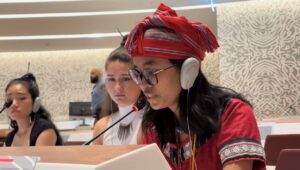
UN Special Rapporteur on the Rights of Indigenous Peoples
The UN Special Rapporteur on the Rights of Indigenous Peoples and the (EMRIP) work together to promote and protect Indigenous Peoples' rights globally. While the Special Rapporteur focuses on country-specific situations and thematic studies, EMRIP provides expertise and advice to the UN Human Rights Council on Indigenous issues. Both mechanisms often coordinate their efforts to address pressing concerns affecting Indigenous communities worldwide.
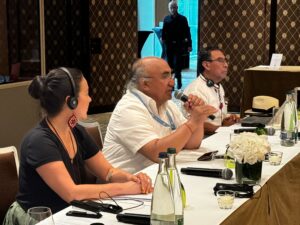
Francisco Calí Tzay, the current UN Special Rapporteur on the Rights of Indigenous Peoples, has called for a moratorium on all carbon trading until the markets can guarantee that all actors will respect the rights of Indigenous Peoples. This statement exemplifies the kind of advocacy work undertaken by the Special Rapporteur in collaboration with EMRIP. For more comprehensive information on the UN Special Rapporteur's work and recent developments, please refer to the latest issue of The Indigenous World, published by the IWGIA.
The International Indian Treaty Council (IITC) held consultations on a set of principles being developed by the United Nations Environment Programme (UNEP), designed to guide private conservation actors to uphold human rights within conservation funding activities. IITC's work to gather feedback from Indigenous Peoples worldwide is a crucial effort to ensure the rights of Indigenous Peoples are respected in the creation of global conservation standards.
At the 17th Session of EMRIP and always, we commend our partners and their allies for the tireless and important work they do every day to advance the rights of Indigenous Peoples.
July 2024 Newsletter
The Christensen Fund Attends the United Nations Permanent Forum on Indigenous Issues
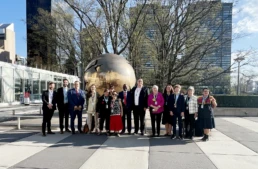
This April, The Christensen Fund’s entire board and staff came together with our partners to participate in the United Nations Permanent Forum on Indigenous Issues. Our Board made the decision to gather everyone together with our partners during this year’s Permanent Forum to manifest our deeply held commitments and values to stand in solidarity with our partners in our shared work. We were also fortunate to harness this unique opportunity to listen, learn, and deepen our connectivity to the organizations and communities we serve.
Program Related Investment: Raven Indigenous Outcomes Fund
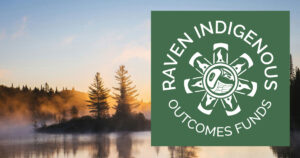 As part of The Christensen Fund’s pledge to provide catalytic capital for projects that can have a transformative impact for Indigenous communities, we have committed $2 million over a seven year term to support the Raven Indigenous Outcomes Fund (RIOF.) The RIOF is founded by and for Indigenous communities. It is a groundbreaking Indigenous-led fund of $50M CAD ($37.5M USD) dedicated to Indigenous outcomes-based financing deals, otherwise known as “pay for performance” projects.
As part of The Christensen Fund’s pledge to provide catalytic capital for projects that can have a transformative impact for Indigenous communities, we have committed $2 million over a seven year term to support the Raven Indigenous Outcomes Fund (RIOF.) The RIOF is founded by and for Indigenous communities. It is a groundbreaking Indigenous-led fund of $50M CAD ($37.5M USD) dedicated to Indigenous outcomes-based financing deals, otherwise known as “pay for performance” projects.
2023 Annual Report
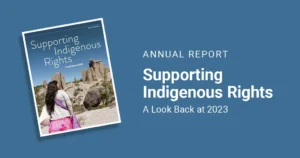 We are excited to share our 2023 annual report. As always, our values are rooted in the United Nations Declaration on the Rights of Indigenous Peoples (UNDRIP). To support the self-determination of Indigenous Peoples, we prioritize Indigenous-led organizations, including Indigenous-led funds. We invite you to dive into our 2023 year in review here.
We are excited to share our 2023 annual report. As always, our values are rooted in the United Nations Declaration on the Rights of Indigenous Peoples (UNDRIP). To support the self-determination of Indigenous Peoples, we prioritize Indigenous-led organizations, including Indigenous-led funds. We invite you to dive into our 2023 year in review here.
Indigenous Leaders Cohort
We are honored to introduce and welcome our 2024-2025 Indigenous Leaders Program Participants. The program celebrates four Indigenous leaders from Mexico, Cameroon, Indonesia, and the United States who are advancing the inherent rights, dignity, and self-determination of their communities, Nations, and Peoples while working to achieve the promise of the United Nations Declaration on the Rights of Indigenous Peoples (UNDRIP).
The Leaders Program was developed collaboratively with these Indigenous leaders in order to respect their prior commitments and demands on their time. In the spirit of self determination, these leaders will focus on issues or projects that they determine themselves. The program also holds space for these leaders to collaborate, learn from each other, and share reflections on the issues most important to them while enjoying the full support of each of their knowledge and experiences.
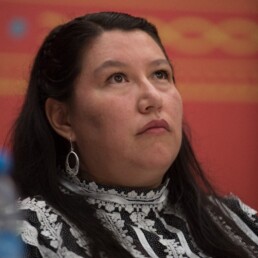
Yásnaya Elena Aguilar Gil (Mexico)
Yasnaya is an Ayuuk Indigenous writer, linguist, translator, researcher, and activist. Her work focuses on the promotion and study of the linguistic diversity and the endangered Indigenous languages in México. She is part of the COLMIX Collective, devoted to the research and promotion of the Indigenous Mixe Culture.
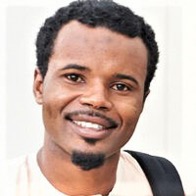
Basiru Isu (Cameroon)
Mr. Basiru is an energetic leader from Cameroon. He is currently the Secretary General of the Network of Indigenous and Local Communities for the Sustainable Management of Forest Ecosystems in Central Africa (REPALEAC), which coordinates the work of Indigenous Peoples across 8 countries in the Congo Basin.
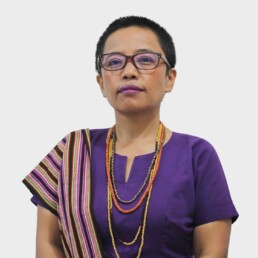
Rukka Sombolinggi (Indonesia)
Rukka Sombolinggi is in her second term as secretary-general of the Indigenous Peoples’ Alliance of the Archipelago (AMAN). She was born and raised in Toraja, South Sulawesi, Indonesia, and belongs to the Indigenous Toraja, who inhabit the highlands of South Sulawesi.
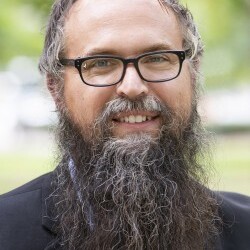
Kyle Whyte (United States)
Kyle Whyte is a faculty member teaching environmental justice at the University of Michigan, where he is George Willis Pack Professor, University Diversity and Social Transformation Professor, and Professor of Philosophy and Native American Studies. His research focuses on Indigenous climate policy, planning, and justice, and the ethics of cooperative relationships between Indigenous Peoples and science organizations.
Recent Partner News
IllumiNative expands its leadership team and launches Media Company – Announcement
Tocabe has started a new YouTube series to highlight Native food producers and their communities. Watch the first episode here
IMDEC launched its Learning Communities for an Emancipatory Practice training space 2024 – Info
Ujamaa Community Resource Team (UCRT) named a winner of the 2024 Ashden Award for their work in Natural Climate Solutions – Announcement
Tenure Facility announces partnership with Turning Tides – From the Forest to the Sea: Uniting for Tenure Rights
The Christensen Fund Details Indigenous Peoples and Local Communities Pledge Commitments
Updated June 26, 2024
At the World Leaders Summit at COP26, the Christensen Fund joined the UK, Norway, Germany, the US, and the Netherlands, and over 15 private funders in a collective pledge of 1.7 billion USD for Indigenous and local communities to protect tropical forests that are vital ecosystems to address climate change, biodiversity loss, and pandemic risk. The Christensen Fund joined this pledge in recognition of the importance of the rights and self determination of Indigenous Peoples in climate finance commitments.
In carrying out our part of the pledge, The Christensen Fund is committed to:
1. Upholding the United Nations Declaration on the Rights of Indigenous Peoples (UNDRIP) in all of our actions,
2. Practicing transparency regarding our giving practices in carrying out our commitment to the wider pledge, and;
3. Being accountable by providing regular updates on our grantmaking, how we are engaging with other signatories, and how we are encouraging the participation of Indigenous peoples throughout the five years of the pledge.
To honor the self determination and the rights of Indigenous Peoples as affirmed by the UNDRIP, The Christensen Fund is providing direct support to organizations and community partners whose work and ways of life sustain and protect tropical forests. Below is a list of the organizations we have supported to date of which 78.38% are Indigenous-led organizations, and 88.98% of the grants offer unrestricted and flexible funding. 100% of the organizational support that The Christensen Fund provides is for the benefit of Indigenous Peoples. Grants (or portions thereof) that support this pledge made in 2024 as of June 26 total $3,057,500 to the following partner organizations:
- Aliansi Masyarakat Adat Nusantara
- Asociación Civil de Trabajo Socioambiental de la Amazonía WATANIBA
- Charapa Consult
- Cultural Survival
- Dynamique des Groupes de Peuples Autochtones (DGPA)
- Environmental Defenders Collaborative
- Forest Peoples Programme
- Global Alliance of Territorial Communities
- Indigenous Peoples Movement for Self-Determination and Liberation, Inc
- International Indian Treaty Council
- International Land and Forest Tenure Facility
- International Work Group for Indigenous Affairs
- Mongabay Org Corporation
- Muuch-Kambal AC
- Ogiek Peoples’ Development Program
- Pawanka Fund
- Podáali – Fundo Indígena da Amazônia Brasileira
- Pueblo Originario Kichwa de Sarayaku
- Rainforest Foundation, Inc
- Re:wild
- Rights and Resources Institute, Inc
- Ujamaa Community Resource Team
- Yayasan Anak Dusun Papua
Grants (or portions thereof) that support this pledge made in 2023 total $5,336,000 to the following partner organizations:
- Acuavita Foundation, for their fiscally sponsored project Comité para el Seguimiento a los 11 Planes de Justicia para Pueblos Indígenas
- Aliansi Masyarakat Adat Nustantra (AMAN)
- Awé Tibúame
- Carto-crítica
- Centro de Capacitacion y Defensa de los Derechos Humanos e Indigenas A.C.
- Centro de Derechos Humanos de la Montaña Tlachinollan, A.C.
- Centro Mexicano de Derecho Ambiental, A.C.
- Cordillera Peoples Alliance, Inc.
- El Quinto Elemento Laboratorio de Investigación e Innovación Periodística
- Environmental Law Alliance Worldwide
- Estudios Rurales y Asesoría AC
- Federación Indígena Empresarial y Comunidades Locales de México A. C. (CIELO)
- Fondo Defensores A.C.
- Fondo Defensores for their fiscally sponsored project Indigenous Rights Law Clinic
- Foro Para el Desarrollo Sustentable A.C.
- Fundacion Pro Defensa de la Naturaleza y sus Derechos, for their fiscally sponored project Accion Ecologica
- Fundación Tosepan A.C.
- Indigenous Movement for Peace Advancement and Conflict Transformation (IMPACT)
- Indigenous Peoples Movement for Self-Determination and Liberation (IPMSDL)
- Indignación Promoción y Defensa de los Derechos Humanos AC
- Instituto Mexicano de Desarrollo Comunitario A.C.
- Kumoontun
- Litigio Estratégico Indígena
- Muuch-Kambal AC
- Namati
- Observatorio Latinoamericano de Derechos Colectivos y Conflictos Socioambientales
- Periodismo De Abajo
- Podaali – Fundo Indigena da Amazonia Brasileira
- Proyecto de Derechos Sociales Económicos y Culturales
- Raíchali Independiente A.C.
- Rainforest Foundation USA
- Re:wild
- Redes para la Diversidad y la Equidad A.C.
- Rhizomatica Communications
- Rights and Resources Institute, Inc
- Servicios Integrales Emuri A.C. (SINÉ)
- Snowchange Cooperative
- Somos Viento
- Synchronicity Earth USA
- Tarahumara’s Children Hospital for their fiscally sponsored project Centros Culturales de la Tarahumara
- Telecomunicaciones Indígenas Comunitarias AC
- Tequio Jurídico A.C.
- Timo Patla Intercultural
- Tsikini A.C.
- U Yix Lu’um
Grants (or portions thereof) that support this pledge made in 2022 total $5,495,000 to the following partner organizations:
- Articulação dos Povos e Organizações Indígenas do Nordeste, Minas Gerais e Espírito Santo (APOINME)
- Asociacion Civil de Trabajo Socioambiental de la Amazonia WATANIBA
- Centro de Derechos Humanos de la Montaña Tlachinollan, A.C.
- Cordillera Peoples Alliance, Inc.
- Cultural Survival
- Fondo Defensores
- Forest Peoples Programme
- Fundacion Karisma
- Fundación Tosepan A.C.
- Global Greengrants Fund
- Indigenous Movement for Peace Advancement and Conflict Transformation (IMPACT)
- Instituto Mexicano de Desarrollo Comunitario A.C. (IMDEC) for their fiscally sponsored project Fondo Defensores
- Indigenous Peoples Movement for Self-Determination and Liberation (IPMSDL)
- Indigenous Peoples Rights International and their US Public Charity Indigenous Peoples Rights, Inc.
- International Working Group on Indigenous Affairs
- Land is Life
- Ogiek Peoples Development Programme (OPDP)
- Rainforest Foundation USA
- Redes para la Diversidad y la Equidad A.C.
- Redes para la Diversidad y la Equidad A.C. for their fiscally sponsored project Chicharras
- Redes para la Diversidad y la Equidad A.C. for their fiscally sponsored project Ojo de Agua
- Servicios Integrales Emuri A.C. (SINÉ) for their fiscally sponsored project Futuros Indígenas
- Synchronicity Earth USA
- Tebtebba Foundation, Inc.
- Tsikini A.C.
- Yayasan Anak Dusun Papua
Grants (or portions thereof) that support this pledge made in 2021 total $2,869,400 to the following partner organizations:
- Centro Mexicano de Derecho Ambiental, A.C.
- Cultural Survival
- Federación Indígena Empresarial y Comunidades Locales de México A. C. (CIELO)
- Foro Para el Desarrollo Sustentable A.C.
- Indigenous Peoples Rights International and their US Public Charity Indigenous Peoples Rights, Inc.
- Instituto Mexicano de Desarrollo Comunitario A.C. (IMDEC)
- Instituto Mexicano de Desarrollo Comunitario A.C. (IMDEC) for their fiscally sponsored project Fondo Defensores
- International Land and Forest Tenure Facility
- International Working Group on Indigenous Affairs
- Land is Life
- Namati
- Redes para la Diversidad y la Equidad A.C.
- Redes para la Diversidad y la Equidad A.C. for their fiscally sponsored project Ojo de Agua
- Servicios Integrales Emuri A.C. (SINÉ)
- Servicios Integrales Emuri A.C. (SINÉ) for their fiscally sponsored project Futuros Indígenas
- Tebtebba Foundation, Inc.
- Tequio Jurídico A.C.
The Christensen Fund will update its activities under the pledge at least quarterly. We look forward to continued engagement to ensure best practices in this important work. Please do not hesitate to contact us with any questions at info@christensenfund.org.
The Christensen Fund Announces Second Cohort of Indigenous Leaders Program
In 2022, The Christensen Fund launched its Indigenous Leaders Program, a cohort of leaders from Indigenous communities across the globe. This 2-year program supported four amazing leaders from Mexico, Kenya, the Philippines, and the United States. The Christensen Fund provided financial support for these leaders to connect with each other, our staff, and our board, to attend various meetings and retreats throughout their participation in the program from 2022 through 2023. We deeply appreciate each of their contributions to supporting Indigenous Peoples everywhere.
We are now honored to introduce and welcome our 2024-2025 Indigenous Leaders Program Participants. The program celebrates four Indigenous leaders from Mexico, Cameroun, Indonesia, and the United States who are advancing the inherent rights, dignity, and self-determination of their communities, Nations, and Peoples while working to achieve the promise of the United Nations Declaration on the Rights of Indigenous Peoples (UNDRIP).
The Leaders Program was developed collaboratively with these Indigenous leaders in order to respect their prior commitments and demands on their time. In the spirit of self determination, these leaders will focus on issues or projects that they determine themselves. The program also holds space for these leaders to collaborate, learn from each other, and share reflections on the issues most important to them while enjoying the full support of each of their knowledge and experiences.
Yásnaya Aguilar (Mexico)
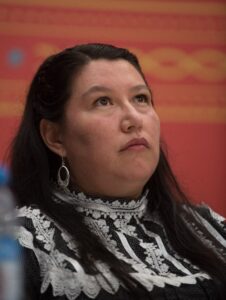 Yasnaya is an Ayuuk Indigenous writer, linguist, translator, researcher, and activist. Her work focuses on the promotion and study of the linguistic diversity and the endangered Indigenous languages in México. She is part of the COLMIX Collective, devoted to the research and promotion of the Indigenous Mixe Culture and collaborates with the Research Library Juan Córdoba, a specialized library on Indigenous cultures. In addition, she is actively involved in her community's system of self-government and the defense of her communities' natural resources and water, as well as defending the rights of Indigenous Peoples and the defense of the Ayuuk Indigenous territory. In 2020, she received the “National Prize for Equality and Non-discrimination”. She has given lectures, conferences, and workshops in different institutions in the country and abroad. As editor, she was one of the coordinators of the Tzam Project, a virtual space where Indigenous women from different nations write about various rights related issues. She is the author of several books, including Un nosotrxs sin estado, Ää.Manifiestos por la diversidad lingüística, La Sangre, la lengua y el apellido, and the anthology Tëkëëk Piky. Her writings have been translated into French, English and Portuguese.
Yasnaya is an Ayuuk Indigenous writer, linguist, translator, researcher, and activist. Her work focuses on the promotion and study of the linguistic diversity and the endangered Indigenous languages in México. She is part of the COLMIX Collective, devoted to the research and promotion of the Indigenous Mixe Culture and collaborates with the Research Library Juan Córdoba, a specialized library on Indigenous cultures. In addition, she is actively involved in her community's system of self-government and the defense of her communities' natural resources and water, as well as defending the rights of Indigenous Peoples and the defense of the Ayuuk Indigenous territory. In 2020, she received the “National Prize for Equality and Non-discrimination”. She has given lectures, conferences, and workshops in different institutions in the country and abroad. As editor, she was one of the coordinators of the Tzam Project, a virtual space where Indigenous women from different nations write about various rights related issues. She is the author of several books, including Un nosotrxs sin estado, Ää.Manifiestos por la diversidad lingüística, La Sangre, la lengua y el apellido, and the anthology Tëkëëk Piky. Her writings have been translated into French, English and Portuguese.
Basiru Isa (Cameroun)
 Mr. Basiru is an energetic leader from Cameroun. He is currently the Secretary General of the Network of Indigenous and Local Communities for the Sustainable Management of Forest Ecosystems in Central Africa (REPALEAC), which coordinates the work of Indigenous Peoples across 8 countries in the Congo Basin. For over a decade, Mr. Basiru has served Indigenous Peoples in Central Africa in supporting their aspiration towards an inclusive Indigenous People-led natural resources governance. He has been at the forefront of supporting the recognition of Indigenous Peoples in the region and in the protection of their rights as provided in UNDRIP. His experience and passion for serving Indigenous Peoples in central Africa is valuable in building collaboration and solidarity for Indigenous Peoples across Africa. The Christensen Fund Indigenous Leaders Program will enable Basiru to share his leadership experience and influence across Africa and promote collaboration with the network of global indigenous leaders.
Mr. Basiru is an energetic leader from Cameroun. He is currently the Secretary General of the Network of Indigenous and Local Communities for the Sustainable Management of Forest Ecosystems in Central Africa (REPALEAC), which coordinates the work of Indigenous Peoples across 8 countries in the Congo Basin. For over a decade, Mr. Basiru has served Indigenous Peoples in Central Africa in supporting their aspiration towards an inclusive Indigenous People-led natural resources governance. He has been at the forefront of supporting the recognition of Indigenous Peoples in the region and in the protection of their rights as provided in UNDRIP. His experience and passion for serving Indigenous Peoples in central Africa is valuable in building collaboration and solidarity for Indigenous Peoples across Africa. The Christensen Fund Indigenous Leaders Program will enable Basiru to share his leadership experience and influence across Africa and promote collaboration with the network of global indigenous leaders.
Rukka Sombolinggi (Indonesia)
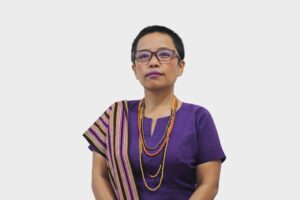 Rukka Sombolinggi is in her second term as secretary-general of the Indigenous Peoples’ Alliance of the Archipelago (AMAN). She was born and raised in Toraja, South Sulawesi, Indonesia, and belongs to the Indigenous Toraja, who inhabit the highlands of South Sulawesi. Prior to joining AMAN in 2000, Rukka was involved in the Indigenous Peoples’ movement through the Jaringan Pembelaan Hak-hak Masyarakat Adat (JAPHAMA) or Network for the Defense of Indigenous Peoples’ Rights, working group of Indigenous People and environmental activists that later gave birth to AMAN. In more than 20 years working at AMAN, Rukka has had various positions, including national advocacy staff, international advocacy coordinator, special staff to the secretary general, and deputy to the secretary-general for advocacy, legal, and political affairs. She also worked as a program specialist at the United Nations Development Program for the Regional Indigenous Peoples' Program in Bangkok, Thailand, in 2006-2010. Rukka holds a bachelor’s degree in agriculture from Hasanuddin University in Makassar, South Sulawesi, Indonesia, and a master’s degree in political science from Chulalongkorn University in Bangkok, Thailand.
Rukka Sombolinggi is in her second term as secretary-general of the Indigenous Peoples’ Alliance of the Archipelago (AMAN). She was born and raised in Toraja, South Sulawesi, Indonesia, and belongs to the Indigenous Toraja, who inhabit the highlands of South Sulawesi. Prior to joining AMAN in 2000, Rukka was involved in the Indigenous Peoples’ movement through the Jaringan Pembelaan Hak-hak Masyarakat Adat (JAPHAMA) or Network for the Defense of Indigenous Peoples’ Rights, working group of Indigenous People and environmental activists that later gave birth to AMAN. In more than 20 years working at AMAN, Rukka has had various positions, including national advocacy staff, international advocacy coordinator, special staff to the secretary general, and deputy to the secretary-general for advocacy, legal, and political affairs. She also worked as a program specialist at the United Nations Development Program for the Regional Indigenous Peoples' Program in Bangkok, Thailand, in 2006-2010. Rukka holds a bachelor’s degree in agriculture from Hasanuddin University in Makassar, South Sulawesi, Indonesia, and a master’s degree in political science from Chulalongkorn University in Bangkok, Thailand.
Kyle Whyte (United States)
 Kyle Whyte is a faculty member teaching environmental justice at the University of Michigan, where he is George Willis Pack Professor, University Diversity and Social Transformation Professor, and Professor of Philosophy and Native American Studies. He is founding Faculty Director of the Tishman Center for Social Justice and the Environment, Principal Investigator of the Energy Equity Project, and Senior Fellow in the Michigan Society of Fellows. His research focuses on Indigenous climate policy, planning, and justice, and the ethics of cooperative relationships between Indigenous Peoples and science organizations. He is an enrolled member of the Citizen Potawatomi Nation. Kyle is currently a U.S. Science Envoy for Indigenous and Local Knowledge, serves on the White House Environmental Justice Advisory Council, and is President of the Board of Directors of the Michigan Environmental Justice Coalition. Kyle has worked for two decades in advocacy of Indigenous climate justice. He collaborates within a network of diverse Indigenous Peoples and Indigenous-led educational institutions and organizations worldwide to advance self-determination in climate leadership, organizing, research, and education.
Kyle Whyte is a faculty member teaching environmental justice at the University of Michigan, where he is George Willis Pack Professor, University Diversity and Social Transformation Professor, and Professor of Philosophy and Native American Studies. He is founding Faculty Director of the Tishman Center for Social Justice and the Environment, Principal Investigator of the Energy Equity Project, and Senior Fellow in the Michigan Society of Fellows. His research focuses on Indigenous climate policy, planning, and justice, and the ethics of cooperative relationships between Indigenous Peoples and science organizations. He is an enrolled member of the Citizen Potawatomi Nation. Kyle is currently a U.S. Science Envoy for Indigenous and Local Knowledge, serves on the White House Environmental Justice Advisory Council, and is President of the Board of Directors of the Michigan Environmental Justice Coalition. Kyle has worked for two decades in advocacy of Indigenous climate justice. He collaborates within a network of diverse Indigenous Peoples and Indigenous-led educational institutions and organizations worldwide to advance self-determination in climate leadership, organizing, research, and education.
The Christensen Fund Announces Program Related Investment in Raven Indigenous Outcomes Fund
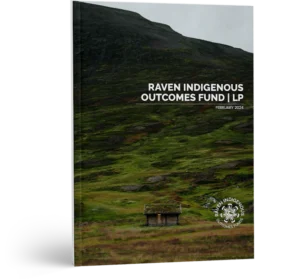 As part of The Christensen Fund's pledge to provide catalytic capital for projects that can have a transformative impact for Indigenous communities, we have committed $2 million over a seven year term to support the Raven Indigenous Outcomes Fund (RIOF.) The RIOF is founded by and for Indigenous communities. It is a first of-its-kind Indigenous-led fund of $50M CAD ($37.5M USD) dedicated to Indigenous outcomes-based financing deals, otherwise known as pay-for-success projects or pay-for-performance projects.
As part of The Christensen Fund's pledge to provide catalytic capital for projects that can have a transformative impact for Indigenous communities, we have committed $2 million over a seven year term to support the Raven Indigenous Outcomes Fund (RIOF.) The RIOF is founded by and for Indigenous communities. It is a first of-its-kind Indigenous-led fund of $50M CAD ($37.5M USD) dedicated to Indigenous outcomes-based financing deals, otherwise known as pay-for-success projects or pay-for-performance projects.
With their Indigenous Outcomes Fund, Raven has developed a strong pathway model for meeting their Community Development Outcome Contracts goals. This begins with Indigenous community-initiated calls for solutions, community leader engagement, demonstrated management capacity, and a process of defining the feasibility and clarity of a pathway to solutions.
At the heart of their approach to creating new and inclusive financing structures is The Solutions Lab. The Solutions Lab convenes Indigenous leaders such as elders, Chief, Council, and members of the target beneficiary demographic. The convening employs community learning to build trust-based relationships inclusive of Indigenous protocols and ceremony. Here, the participants co-design outcome measures and metrics with a focus on both governance and operational leadership as key to success and reducing leadership risk.
Raven’s work is innovative and impactful for First Nations and Indigenous Peoples globally. By harnessing their financial acumen and trust as well as engaging in deep collaboration with Indigenous Peoples, Raven has reduced the risk for investors seeking positive outcomes in communities considered too risky for investment of any type beyond grant funding. The return on investment is positive, the social and economic impacts are significant and align with The Christensen Fund’s core value of self-determined Indigenous outcomes.
IMPACT CHARITABLE
This exciting program related investment was set up with Impact Charitable, which exists to unite catalytic philanthropists, community partners, financial institutions, foundations, social enterprises, and governmental bodies. Impact Charitable helps close the gaps between the sources of impact-first capital and communities, ventures, and funds who have traditionally faced systemic barriers to accessing critical financial resources. This collaboration with Impact Charitable makes it easy for people to invest alongside us.
If you are interested in joining us in these investments, contact: cindy@impactcharitable.org or shawn@christensenfund.org
Follow us on Instagram, LinkedIn and Facebook for regular news and updates on our partners. And click here to read more about our Program Related Investments.
The Christensen Fund's 2023 Annual Report: Supporting Indigenous Rights
The Christensen Fund is excited to share our 2023 annual report with our colleagues around the world. More so than ever before, our values are rooted in the United Nations Declaration on the Rights of Indigenous Peoples (UNDRIP). To support the self-determination of Indigenous Peoples, we prioritize Indigenous-led organizations, including Indigenous-led funds.
In our practice of trust-based philanthropy, we almost always provide general operating support grants, maintain flexible requirements and criteria, and prioritize joint learning rather than stringent monitoring and evaluation. We strive to create connections between communities and movements at the grassroots, subnational, national and international levels.
Thanks to our Board, staff, philanthropic colleagues and partners around the globe for informing our strategy and helping us reflect on all the learning that occurred in 2023.
Groundbreaking Investment in Two Native Organizations
The Christensen Fund launches Program Related Investment Initiative
Tocabe Indigenous Marketplace
The Christensen Fund has committed a $3,000,000 Program Related Investment (PRI) to Tocabe’s Indigenous Marketplace, a Native-owned and operated restaurant and marketplace offering ready-made Harvest Meals™ that specializes in Native American cuisine.
This investment will help build out their new direct-to-Tribe meal program and support their construction of a Native food producers supply chain.
Tocabe is currently the only Native-owned and operated restaurant and marketplace offering ready-made Harvest Meals™ that specializes in Native American cuisine. Indigenous ingredients are sourced from Native farmers, ranchers, producers and caretakers. Their methodology goes beyond farm to table and is described as, “Seed to Soul.” Indigenous-sourced ingredients provide healthy meals that not only nourish but contribute to the revitalization and preservation of Indigenous culture. Tocabe feeds the soul.
The support from The Christensen Fund goes directly to the development of Tocabe’s Indigenous Marketplace and ready-made Harvest Meals available to order online, thereby broadening accessibility to Native foods. Tocabe’s vision is to embrace the traditions of American Indian Cuisine and ingredients by building community through food. As stated on their website: "We believe that food is more than just sustenance — it's a powerful way to connect with our heritage, our community, and each other. Join us in our mission to interlink Native and Indigenous food systems with every household to make sure all peoples have access to foods that nourish our communities from seed to soul."
Get to know more about Tocabe & even order some of their products at https://www.tocabe.com/
In the news:
Why Osage Chef Ben Jacobs Launched a Direct-Tribe Meal Delivery Service - Saveur
Tocabe Expands With Line of Native-Made Frozen Meals - Westword
Oweesta Corporation
The Christensen Fund has also committed a $1,000,000 PRI to Ow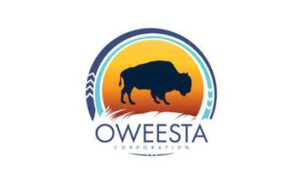 eesta, a corporation committed to investing in Native Sovereignty, to further their leadership and support for Native Community Development Financial Institutions (CDFI.)
eesta, a corporation committed to investing in Native Sovereignty, to further their leadership and support for Native Community Development Financial Institutions (CDFI.)
Oweesta Corporation, whose name is derived for the Mohawk word for "money," is the longest standing Native CDFI intermediary offering financial products and development services exclusively to Native CDFIs and Native communities, thereby providing opportunities for Native people to develop financial assets and to create wealth. For over 20 years, Oweesta has provided the tools, training, and capital to help Native people control their economic destinies.
Native CDFIs like Oweesta directly provide Native American communities the tools and capital support required for real and sustainable job creation, small business development, commercial real estate development, and affordable housing/home ownership, while also offering basic banking services and financial literacy training to "underbanked" Native American communities who have been historically targeted by predatory lending practices. In their 20+ years in existence, Oweesta has many success stories and The Christensen Fund is proud to support their monumental work for Indigenous enterprises, communities and individuals.
Get to know more about Oweesta and their current projects here: https://www.oweesta.org/
Impact Charitable
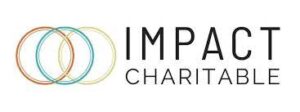
Both of these groundbreaking PRIs were set up in collaboration with Impact Charitable, which exists to unite catalytic philanthropists, community partners, financial institutions, foundations, social enterprises, and governmental bodies. Impact Charitable helps close the gaps between the sources of impact-first capital and communities, ventures, and funds who have traditionally faced systemic barriers to accessing critical financial resources. This collaboration with Impact Charitable makes it easy for people to invest alongside us.
If you are interested in joining us in these investments, contact: cindy@impactcharitable.org or shawn@christensenfund.org
In the news:
Impact Charitable Announcement of Oweesta PRI
Purpose Aligned Capital
As part of the Purpose Aligned Capital plan, The Christensen Fund established a Purpose-Aligned Investment portfolio seeking to catalyze Indigenous-focused investment opportunities and enhance the impact of The Christensen Fund's endowed assets. Purpose-Aligned Investments have a dual objective: to further The Christensen Fund's purpose of supporting Indigenous peoples in advancing their inherent rights, dignity, and self-determination, while also meeting the investment objectives for the endowment to sustain The Christensen Fund's grand making and operations.
Together with its outsourced investment office Global Endowment Management (GEM,) The Christensen Fund developed a framework for assessing the Purpose-alignment of any investment opportunity. The framework consists of three factors -- Indigenous leadership, demonstrated engagement with Indigenous communities, and integration of an Indigenous lens in the investment process -- and created a shared language for understanding Purpose-alignment in an investment context.
The Christensen Fund made its first two Purpose-Aligned Investments at the end of 2023 in TAHITO and Raven Indigenous Capital Partners.
TAHITO is an Indigenous-led long-only public equity fund that incorporates a traditional Maori worldview into the fund's investment philosophy and selection process. The fund was co-founded by Temuera Hall, a member of the Ngāti Tūwharetoa and Te Urawa Maori tribes. The investment philosophy centers on the Maori view of the connection and interdependence of all things. Maori ethics put people and the environment first as fundamental to any thriving community. The fund invests in Australian and New Zealand public equities and has a detailed ethical process that includes both positive and negative screens, supporting alignment with The Christensen Fund's values and purpose.
Raven Indigenous Capital Partners is an early-stage venture capital firm led by two Indigenous partners. The Christensen Fund committed to Raven's Opportunities Fund I, which is deploying additional capital into some of Raven's highest conviction portfolio companies in their first fund, which closed at the beginning of 2023. Raven's brand with Indigenous entrepreneurs is unmatched and their focus on supporting Indigenous-led businesses has resulted in ~70% of its portfolio companies having majority Indigenous ownership.
Follow us on Instagram, LinkedIn and Facebook for regular news and updates on our partners.
The Christensen Fund Elects Three New Indigenous Women Trustees
As part of its commitment to have at least half of its Trustees be Indigenous Peoples, The Christensen Fund is pleased to announce that it has elected three new Trustees to its Board.: Ikal Angelei, Joan Carling, and Vicky Tauli-Corpuz.
“These three women are incredibly accomplished and expand The Christensen Fund’s Board beyond North America,” says Diane Christensen, Co-Chair of The Christensen Fund’s Board. “It is also extremely important that our Board now includes representatives from partner organizations. The addition of these Trustees enables our Board to better reflect the communities and partners that our organization works with to support the rights of Indigenous Peoples around the world, and is also a tangible demonstration of our commitment to self-determination for Indigenous Peoples.”
Carla Fredericks, CEO of The Christensen Fund, states, “I am thrilled that our Board has made this commitment to Indigenizing its Trustee leadership. These women are all heroes and stand as exemplary, powerful leaders within Indigenous communities and beyond. I look forward to continuing to work closely with our Board to support our partners in safeguarding the inherent rights and dignity of Indigenous peoples around the globe.”
The Christensen Fund’s newest Trustees are:
Ikal Angelei
Ikal is an environmental activist from Kenya. She is co-founder and Director of Friends of Lake Turkana, a grassroots organization that seeks to foster social, economic and environmental justice in the Lake Turkana Basin. Ikal completed a Master’s degree in Public Policy and Political Science at Stony Brook University in New York. In 2012 she was awarded with the Goldman Environmental Prize, particularly for her voicing on behalf of Northern Kenyan indigenous communities about the environmental implications of the Gilgel Gibe III Dam.
Joan Carling
Joan Carling is an indigenous activist from the Cordillera, Philippines with more than 20 years of working on indigenous issues from the grassroots to the international level. Her expertise includes human rights, sustainable development, the environment, and climate change. She was the General Secretary of the Asia Indigenous People Pact (AIPP) From 2008 to 2016 and was an indigenous expert member of the UN Permanent Forum on Indigenous Issues from 2014-2016. She was awarded the Champions of the Earth- Lifetime Achievement Award by UN Environment in September 2018. Ms Carling is the co-founder and currently the Executive Director of the Indigenous Peoples Rights International-IPRI.
Victoria Tauli-Corpuz
Victoria Tauli-Corpuz was appointed as the United Nations Special Rapporteur on the rights of indigenous peoples by the Human Rights Council in 2014, and served until April 2020.
She is an indigenous leader and a human rights expert from the Kankana-ey Igorot people of the Cordillera Region in the Philippines. As an indigenous activist, she has worked for over four decades on helping build movements, networks and institutions of indigenous peoples from the local to the global levels.
Ms. Tauli-Corpuz is the former Chair of the UN Permanent Forum on Indigenous Issues (2005-2010), and has served as the chairperson-rapporteur of the Voluntary Fund for Indigenous Populations. As an indigenous leader, she was actively engaged in drafting and adoption of the UN Declaration on the Rights of Indigenous Peoples from 1985 to 2007. She has founded and managed various NGOs involved in social awareness raising, leadership development, climate change and the advancement of indigenous peoples' and women's rights and she was a member of United Nations Development Programme Civil Society Organizations Advisory Committee.
In her capacity as the United Nations Special Rapporteur on the rights of indigenous peoples, Ms. Tauli-Corpuz provided expert testimony before the Inter-American Court of Human Rights, and the African Court on human and peoples’ rights and prepared policy advice to the World Bank, the Asia Development Bank, the World Intellectual Property Organisation (WIPO), among others.
Tero Mustonen of Snowchange Cooperative Awarded 2023 Goldman Prize
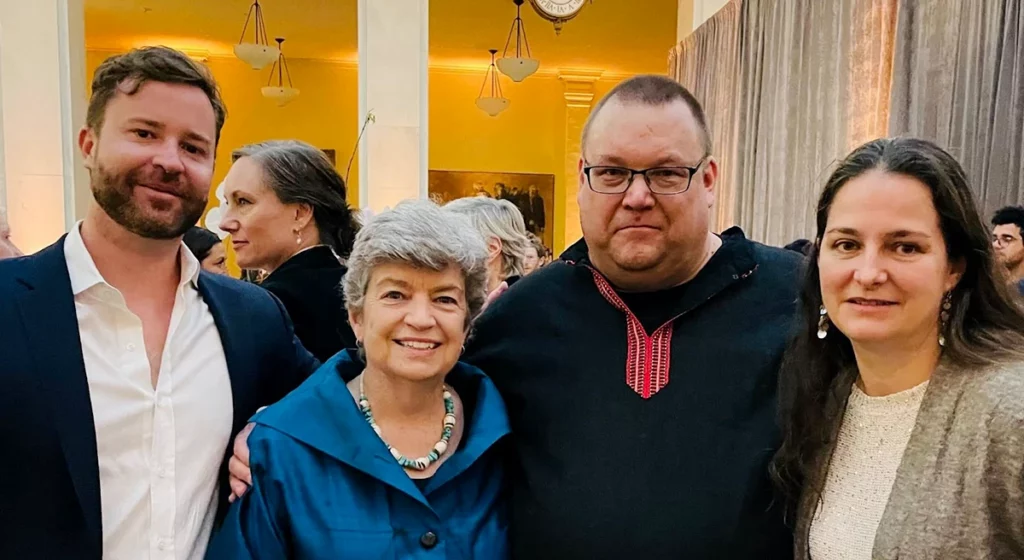
The Christensen Fund would like to congratulate the 2023 Goldman Prize recipients. Each year, the Goldman Prize recognizes the work of extraordinary grassroots leaders and their incredible work in safeguarding the environment. We are especially pleased that the amazing work of Tero Mustonen, President of our partner Snowchange Cooperative, was highlighted for his important work to restore landscapes across Finland.
Snowchange Cooperative is an Indigenous-led pan-arctic organization based in Finland. Since their founding in 2000, Snowchange Cooperative has supported many organizations throughout the Arctic, advanced global policy, created a small grants program that has been transformative for communities who are traditionally overlooked by most grant-making mechanisms, and used traditional knowledge to restore thousands of hectares of peatlands.
Unrestricted support from The Christensen Fund will further help to advance operations and programs of Snowchange and will arrive at a critical time due to the conflict between Ukraine and Russia, which could compromise the ability to support certain communities in the Arctic. The Christensen Fund is honored to have supported the work of Snowchange Cooperative since 2018.
Please join us in congratulating Tero and all of the 2023 Goldman Prize recipients! Read more about this award and how you can support Snowchange Cooperative here.
Native Americans In Philanthropy Launches Historic Tribal Nations Conservation Pledge
Fifteen funders have committed over $100 million over the next five years to support Tribal-led biodiversity restoration and conservation
Washington, D.C. – Native Americans in Philanthropy and Biodiversity Funders Group, in partnership with 15 leading funders, announced the launch of the Tribal Nations Conservation Pledge today at the White House Conservation in Action Summit. To date, funders have committed $102.5 million over the next five years to support Tribal-led conservation work. The pledge calls on foundations and philanthropists to allocate a self-determined percentage or amount of funding to support the biodiversity and conservation efforts of Tribes, inter-Tribal organizations, and Tribal consortia.
The Tribal Nations Conservation Pledge demonstrates an important commitment to a new way of thinking about conservation that centers the people who are most impacted by climate and biodiversity crises but also hold the knowledge on how to best steward our lands and water. Indigenous people, especially in the United States, have been impacted by a changing environment that has upended traditional hunting and fishing practices, as well as livelihoods.
“Conservation is not just about safeguarding land. It’s about prioritizing people, especially those who hold the traditional knowledge on how to combat our climate and biodiversity crisis, and recognizing that they can chart a path forward,” said Erik Stegman, CEO of Native Americans in Philanthropy. “Through the Tribal Nations Conservation Pledge, Tribal Nations can continue to lead the way on the conservation of our lands and waterways, our agricultural systems, and our planet. We are grateful to our funders who are part of this turning point in the environmental space and understand the impact of grounding this work in Indigenous values and sustainability. ”
Native Americans in Philanthropy and the Biodiversity Funders Group are committed to educating and organizing funders around Tribal-led conservation opportunities, growing total commitment dollars, and changing how we address climate change. The leading funders that have already joined the Pledge and committed to supporting Tribal-led conservation are: The Alaska Conservation Foundation, The Christensen Fund, The Decolonizing Wealth Project, The Doris Duke Charitable Foundation, The Gordon and Betty Moore Foundation, The Grousemont Foundation, The JM Kaplan Fund, The David and Lucile Packard Foundation, The Resources Legacy Fund, Re:wild, The Walton Family Foundation, The Water Foundation, The Wilburforce Foundation, The William and Flora Hewlett Foundation, and The Wyss Foundation. The list will continue to grow as more funders commit to the Pledge.
“Biodiversity Funders Group (BFG) and our members are honored to lift up the importance of funding the conservation strategies and priorities of Tribal Nations, the original stewards of our environment,” said Lisa Pawlek Jaguzny, Director of Programs and Initiatives at the Biodiversity Funders Group. “This pledge is just the beginning of our partnership with Native Americans in Philanthropy to expand the circle of funders who are committed to a new, people-centered vision for conservation that is rooted in the leadership, knowledge, and traditions of Tribes.”
The collaboration of these funders represents a shift in philanthropic support for Tribal-led solutions in conservation work. Historically, less than 0.5% of philanthropic dollars have been allocated to Native communities, and fewer of those dollars have gone towards Native-led conservation. This Pledge is a turning point in climate funding that recognizes and supports Native communities who have long been leaders in this work.
“The Christensen Fund is a proud supporter and seed funder of this initiative which promotes and recognizes the self-determination and sovereignty of Tribes across the United States,” said Carla Fredericks, CEO of The Christensen Fund. “Since time immemorial, Native American Tribes and communities have lived out their commitment to our Mother Earth, in deep cosmological relationship with these landscapes and ecosystems. By providing funding at scale to Tribes to ensure generational protection of their homelands, we are investing in both Indigenous knowledge and the planet as a whole - a true win-win."
The Tribal Nations Conservation Pledge will be critical in ensuring that the U.S. meets the minimum goals of the 30 x 30 Initiative, a global effort to conserve 30% of the terrestrial and marine habitat by 2030. Tribal-led conservation methods are already focused on protecting and preserving biodiversity, and the pledge will help accelerate progress towards the global goal over the next seven years.
Native Americans in Philanthropy and the Biodiversity Funders Group encourage foundations to increase funding of Tribal-led biodiversity protection and preservation by pledging a percentage of their annual programmatic dollars to these efforts or by donating directly to the fund.
For more information, visit www.tribes.native philanthropy.org.
# # #
About Native Americans in Philanthropy
For over thirty years, Native Americans in Philanthropy has promoted equitable and effective philanthropy in Native communities. They do this through leadership development, education, research, and strategic partnerships with funders and philanthropic organizations. The cornerstone of their work is their relatives and their networks.
NAP supports several communities of stakeholders that work together to build knowledge, community, priorities, and power in the sector. These networks include Native professionals in philanthropy, elected Tribal leaders, Native youth leaders, Native philanthropic executives and board members, and Native nonprofit leaders.
About Biodiversity Funders Group
The Biodiversity Funders Group (BFG) is a professional association of environmental, conservation, and climate and energy grantmakers. We were founded in 1987 as the Consultative Group on Biological Diversity by a group of foundations and federal agencies to encourage funders to work together and leverage their resources. Today, approximately 75 funding institutions, predominantly private foundations, are formal members, while more than 200 other grantmaking institutions benefit from our activities as program partners.


